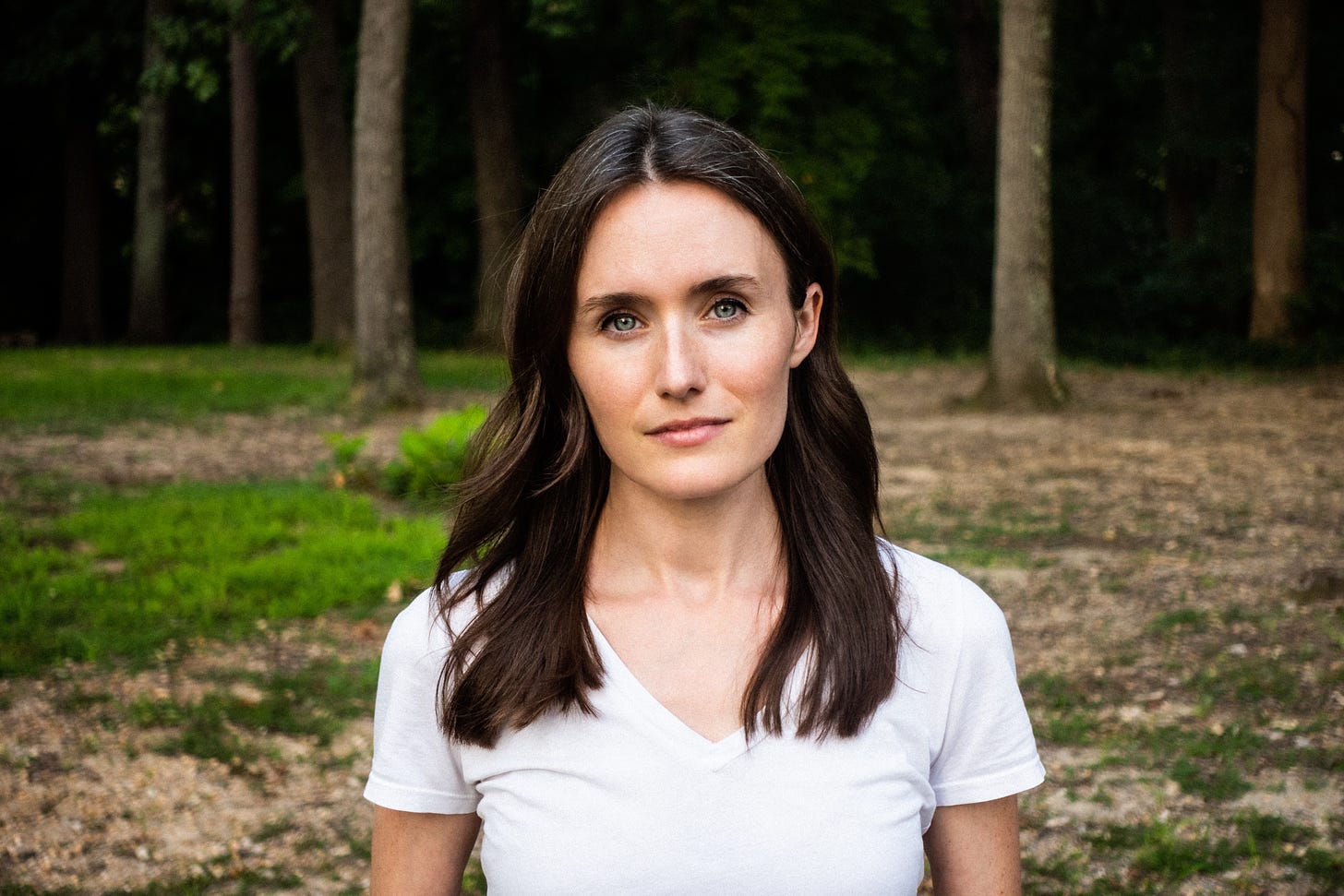Mary Childs (MC) was introduced to us by deep-cut WITI contributor Gabe Brosbe. She’s currently cohost of Planet Money, an FT alum, and just wrote a new book on Bill Gross called The Bond King. Go buy it! We’re super happy to have her on the page this week. -Colin (CJN)
Tell us about yourself.
I’m a cohost of Planet Money, NPR’s economics podcast, and my first book was just published by Flatiron Books: THE BOND KING: How One Man Made a Market, Built an Empire, and Lost It All. I’ve been a reporter at Barron’s magazine, the Financial Times, and Bloomberg News. I am based in a tiny sunny glassed-in-porch home office in Richmond, Virginia.
Describe your media diet.
I’ll just get it out of the way: some real trash. I spend too much time on Twitter. But I follow geniuses so??? Journalists who I know go above and beyond, sociologists who help make visible mental framing, economists and finance folks who debate the phenomena we report on at Planet Money. So it’s “bad” and I hate it, but it also kind of works.
It’s too on-brand but I listen to good old-fashioned NPR a lot. All Things Considered and Morning Edition are just good. I love a good member-station show like 1A and Full Disclosure. I listen to a lot of podcasts, though not as frequently as I'd like: I love Odd Lots, the New Bazaar, Song Exploder, Reply All, It’s Been a Minute, What’s Your Problem with Jacob Goldstein, Slate Money. I haven’t yet but people keep telling me to listen to Normal Gossip. I miss gossip so much. Please email me your gossip.
I subscribe to so many newsletters, too many. My friend Matt Levine’s Money Stuff is appointment reading for everyone in our industry. I rely on Need 2 Know for a broad sweep of mainstream cultural news that I otherwise frequently miss. I like LitHub’s newsletter to keep my brain alive. I also subscribe to: Today in Tabs, Hunter Harris, Dirt, The Diff, my friend Wagatwe Wanjuki’s Patreon, Garbage Day, The Main Event by stacy-marie ishmael, The Overshoot by Matt Klein, Edith Zimmerman, Mike Solana, Adam Tooze, Emily Oster, Emily Gould, Zeynep Tufekci, Katelyn Jetelina from Your Local Epidemiologist, Ryan Avent from The Bellows, The Microdose….
I like Future Earth on Instagram, especially for Good News Tuesday; my friend Sophia Li’s Instagram is also a place I look to for constructive and occasionally uplifting climate/environment-related news and thoughts. Jeremy O. Harris’s “coronavirus mixtapes” are not NOT an important source of news for me.
Increasingly I find myself going straight to the front page of news organizations (NY Mag, FT, NPR, WSJ, NYT, Bloomberg), to get a broader look at what’s going on and to keep an eye on how different institutions are translating events or weighting their significance.
What’s the last great book you read? Our Country Friends! Luster.
What are you reading now?
Olga Dies Dreaming!! I’m looking forward to reading Nazi Billionaires.
What’s your reading strategy when you pick up a print copy of your favorite publication?
When I’ve removed my blue-light blocking glasses for the evening, I generally flip through the physical copy of the New Yorker and stop when I feel like it. Sometimes it is not voluntary -- like there’s nothing naturally dragging me into Margaritaville, in fact I think I tried to navigate away (“turn the page” I guess I mean) but this by Nick Paumgarten was so unexpected and extremely delightful and I started reading it by accident and finished it in one sitting. (The kicker!!! Come on.)
I had a really good reading hack for a while where my baby would grab a marker and -- “DRAW PITCHER? DRAW PITCHER?” -- scribble on the New Yorker or Vanity Fair or Vogue or New York Times Magazine while I read it. This era seems to have largely passed but for a brief beautiful moment there, I got through my magazines.
Who should everyone be reading that they’re not? Ellen Huet!!! People read her but not enough. Her newsletter feels so normal. Smart and funny but normal. For listening, everyone should listen to Cardiff Garcia. He has a staggering ability to synthesize vast amounts of information and come to a robust conclusion, fast. And he has that magical quality where he elicits the best, smartest, sharpest version of the interviewee.
What is the best non-famous app you love on your phone? A flaw in my personality is that I refuse to download apps. I think it started with hearing circa 2010 that the Yelp app checked your location when you weren’t using it. I have many secrets; I can’t have that. So no apps for me even when they are useful. EXCEPT ok maybe the Amtrak app.
Plane or train? TRAIN!! My climate anxiety is increasingly ruling out air travel for me, unless it’s completely necessary or I can batch a few things at once / stay where I’m going for a long time. But a train! It’s so beautiful. You just glide on and off. If you miss it, there’s another one later. Your carbon footprint is relatively minimal. You can watch the world change as it flies by. You can get a Viewliner Roomette and take work calls (when the service/wifi allows) without annoying your fellow passengers. And you get meals! They’re fine!
What is one place everyone should visit? I’m gonna say Richmond so that everyone comes to visit me.
Tell us the story of a rabbit hole you fell deep into.
While a full-time financial reporter, I once spent three days researching the nightclub shooting that involved Diddy, JLo, and Shyne. I could find no way to make this useful to my job. I just needed to understand what happened. Where is my podcast series on this!! (MC)
—
Promoted Post: WITI x The Daily Upside
A Message to Investors:
Here’s the truth: there are no magic bullets when it comes to building wealth. Whether it’s disingenuous headlines or relentless scare tactics used to generate clicks, modern business news was not built to serve individual investors.
The Daily Upside, founded by a team of investment bankers, journalists, and scholars, was created for the sole purpose of making investors smarter. The (completely free) daily newsletter is jam-packed with equal doses of charisma and insight. Instead of regurgitating headlines, The Daily Upside goes a level deeper to instantly boost your business IQ and upgrade your investing know-how. Simply put, it’s a must-read. Join today for free
WITI x McKinsey:
An ongoing partnership where we highlight interesting McKinsey research, writing, and data.
Whose health concerns have we been solving for? Health inequities manifest in a variety of ways: limited access to food, care, or medication; unmet needs, when innovation is misaligned with disease burdens; or underserved communities, when key actors fail to engage groups commensurate with their needs. Addressing the issues has obvious benefits for patients—and the pharmaceutical and life sciences companies that serve them. A new article outlines a framework to approach health equity.
Thanks for reading,
Noah (NRB) & Colin (CJN) & Mary (MC)
—
Why is this interesting? is a daily email from Noah Brier & Colin Nagy (and friends!) about interesting things. If you’ve enjoyed this edition, please consider forwarding it to a friend. If you’re reading it for the first time, consider subscribing (it’s free!).





